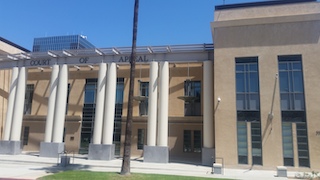It is not uncommon for police to conduct what they will characterize as mere “welfare and safety checks” when in fact they strongly suspect something illegal is taking place, but they do not have sufficient information to form a reasonable suspicion. However, once police act on their hunch and conduct a “welfare and safety check,” they find drugs, stolen property, perhaps an unregistered firearm, etc., and make an arrest.
Do the ends justify the means? Some may say yes, but the following reported decision would answer this rhetorical decision with a strong no.
In the early morning hours of April 21, 2017, a police officer from the City of San Jacinto was on patrol in a residential area. He came upon a car legally parked with its fog lights on and two individuals in the front seat. The officer passed the parked car and turned around. He then came at the parked car with his two spotlights on, pointing straight at the driver.
When asked why he did this, the officer explained at the preliminary hearing, “maybe they’re stranded” and “what are they doing?” and that he wanted to know “if they live here.”
The officer then approached the driver’s side of the car and smelled a strong marijuana smell coming from the car. He could see the passenger attempting to conceal a few bags that the officer strongly suspected were marijuana.
 4th Appellate District Division 2 Riverside
4th Appellate District Division 2 Riverside
The officer asked if either person was on probation and the driver, Martell Shimon Kidd, stated he was on probation. Pursuant to the Fourth Amendment waiver entered into as a term of probation, the officer asked to search the interior of the car. Upon doing so, the officer found 26 ounces of marijuana (approximately 730 grams), a digital scale, a firearm with the serial number scratched off, a loaded magazine for the firearm and 142 Alprazolam pills.
Kidd was then arrested on and charged with multiple felony charges in Riverside Superior Court resulting from the items located in the car.
At the preliminary hearing, Kidd’s attorney filed a motion to suppress the evidence under Penal Code § 1538.5. The key argument was that the police officer unlawfully detained Mr. Kidd by pulling up behind him and shining his two bright searchlights on Kidd, which a reasonable person would understand as indicating he was not free to leave. Judge Randall D. White denied the motion and Kidd’s attorney appealed the ruling to the Fourth Appellate District.
The Fourth District, in People v. Martell Shimon Kidd (2019 DJDAR 5032), agreed with Kidd and reversed the trial court. The appellate court’s analysis is rich with good law that can guide future cases with a similar fact scenario.
The court began from the point that “it is well established that law enforcement officers may approach someone on the street or in another public place and converse if the person is willing to do so, without having any articulable suspicion of criminal activity.” People v. Parrott (2017) 10 Cal.App.5th 485, 492, quoting People v. Rivera (2007) 41 Cal.4th 304, 309. “As long as a reasonable person would have believed he or she was free to leave or end the encounter, a court must take into account the totality of the circumstances from the perspective of a reasonable person in the defendant’s position.” People v. Parrott, supra, at 493.
Here, the officer was pointing his car at Kidd’s car, about ten feet away, with two bright white spotlights pointing at him. The appellate court found that no reasonable person would believe he or she was free to leave in such circumstances. A similar situation arose in People v. Bailey (1985) 176 Cal.App.3d 402, 406, wherein the court found a detention when a police officer pulled in behind a parked car and turned on its colored emergency lights.
Therefore, there was a detention, but it was not legal because the officer did not have a reasonable, articulable suspicion that Kidd had committed or was about to commit a crime. In re Manuel G. (1997) 16 Cal.4th 805, 821. The officer could not “point to specific articulable facts that, “considered in light of the totality of the circumstances, provide some objective manifestation that the person detained may be involved in criminal activity.” People v. Souza (1994) 9 Cal.4th 224, 230-231.
It merits mention that it is not a Vehicle Code violation or any other crime to use only fog lamps while parked. Vehicle Code § 24400(b).
Consequently, all evidence obtained pursuant to the illegal detention should have been excluded and ordered suppressed under the exclusionary rule. See Herring v. United States (2009) 555 U.S. 135, 136, 144 [the exclusionary rule “serves to deter deliberate, reckless, or grossly negligent conduct, or in some circumstances recurring or systematic negligence”]; People v. Robinson (2010) 47 Cal.4th 1104, 1126 (following Herring).
The appellate court went on to state that police seizure made “in the absence of any suspicion of wrongdoing, and apparently just ‘in the hope that something might turn up,’ directly implicate the central rationale underlying the exclusionary rule, deterrence of police misconduct. Brown v. Illinois (1975) 422 U.S. 590, 605.
The order of the trial court denying the motion to suppress was thus reversed.
 4th Appellate District Division 2 Riverside
4th Appellate District Division 2 Riverside